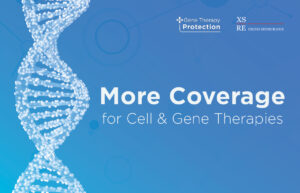Insurance
What is Stop Loss Insurance
What Is Stop Loss Insurance? Navigating Self-Funded Health Plans with the Safety Net of Stop Loss Stop loss insurance, also known as excess loss insurance, is a type of coverage designed to protect businesses that self-fund their employee benefit plans. Self-funding, or self-insurance, means that instead of paying fixed premiums to an insurance carrier, the…
Read MoreWhat Is Self-Funding? Exploring Key Benefits and Details
Self-funding has emerged as an attractive alternative to the traditional fully-insured group health plans where employers and their members pay fixed premiums for coverage. So, what exactly is self-funding, and why are an increasing number of businesses of all sizes opting for this approach? Let’s outline the concept and explore its key benefits. Self-funding, also…
Read MoreFDA Approves New Gene Therapy Drugs for Sickle Cell Disease
Today, the U.S. Food and Drug Administration approved two milestone treatments, Casgevy and Lyfgenia, representing the first cell-based gene therapies for the treatment of sickle cell disease (SCD) in patients 12 years and older. Additionally, one of these therapies, Casgevy, is the first FDA-approved treatment to utilize a type of novel genome editing technology, signaling…
Read More9th Drug Added to Gene Therapy Protection
Cell and gene therapies are curative treatments for diseases such as immune deficiencies, Hemophilia, Leukemia, and more. However, they are also incredibly expensive and potentially catastrophic for self-funded health plans. With our Gene Therapy Protection, Excess Reinsurance can help reduce our clients’ financial risk related to the therapies and put employers in a position to…
Read MoreACA: Summary of Benefits and Coverage Requirement
The Affordable Care Act (ACA) generally requires group health plans and health insurance issuers that offer group health coverage to prepare and distribute to plan participants and beneficiaries a brief standard summary of the plan’s benefits and coverage. This summary is called the summary of benefits and coverage (SBC). In order to help employers fulfill…
Read MoreFAQs on Catastrophic Plan Coverage and the Coronavirus Disease 2019 (COVID-19)
Q1. Do catastrophic plans currently include coverage for the diagnosis and treatment of COVID-19? A1. Yes. Catastrophic plans must cover the essential health benefits (EHB) as required by section 1302(b) of the Patient Protection and Affordable Care Act (PPACA), subject to certain limitations. However, the exact coverage details and cost-sharing amounts for individual services may…
Read MoreSingle-Payer Health Care: Is the Administrative Savings Argument Smoke and Mirrors?
The latest in our Insights from the Experts series explores the single-payer health care debate, the administrative costs of Medicare versus the private insurance market, and potential impacts on the quality of health care in the US. Advocates for a centralized single-payer health care system like Medicare-for-All often claim that Medicare, a government-run system, has…
Read MoreIRS Affirms Employer Mandate Enforcement Efforts
August 20, 2019 On June 28, 2019, the IRS sent a letter (number 2019-0008) to Senator Susan Collins, reaffirming that they will continue enforcing the employer mandate. Senator Collins, on behalf of several of her constituents, had written to the IRS asking whether the IRS might waive or reduce employer mandate penalties based on hardship…
Read MoreGene Therapies
Gene therapy has the potential to have a significant impact on health care costs by decreasing the lifetime expenses associated with organ transplants, hospital stays, and cancer and chronic disease treatments. For example, average undiscounted lifetime health care costs for a 45-year-old with sickle cell disease have reached $953,640. Meanwhile, a 2016 analysis in the…
Read More








